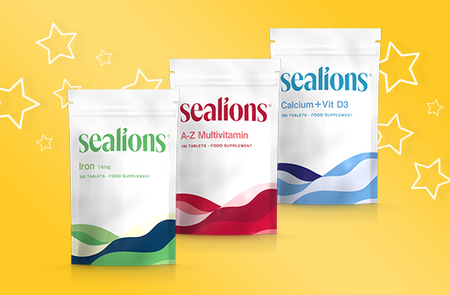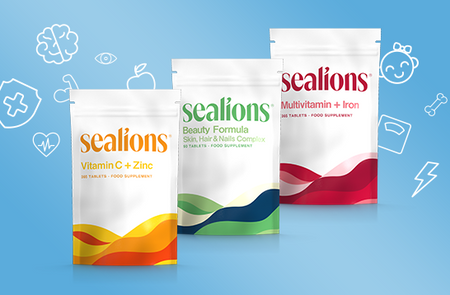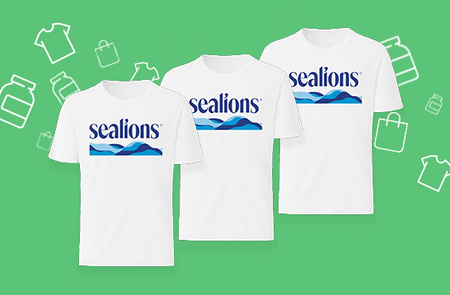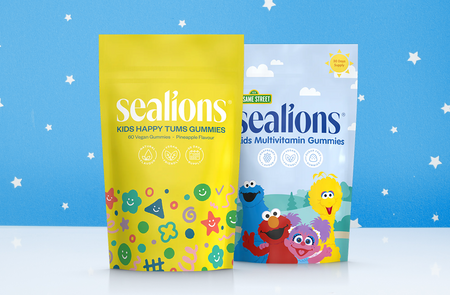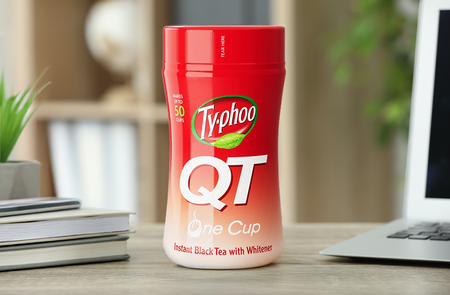
The Top Five Vitamins You Need to Buy this Winter
Winter in the UK can be a challenging time for maintaining optimal health. As the temperature drops and the days grow shorter, our bodies face a unique set of challenges. The good news is that with the right vitamins, you can bolster your immune system, stay energised, and keep those winter blues at bay. Let's explore the top five vitamins that UK residents should consider adding to their winter regimen with Sealions nutrition and vitamin expert Matt Durkin.
1. Vitamin D: The Sunshine Vitamin
In a country known for its cloudy skies, it's no surprise that Vitamin D tops the list of essential winter vitamins. Known as the "sunshine vitamin", Vitamin D is primarily synthesised in our skin when exposed to sunlight. During the darker months, however, our natural Vitamin D production can plummet. This deficiency can lead to weakened immunity and a higher susceptibility to infections.[1]
To combat this, consider vitamin D supplements. Public Health England recommends that adults and children over one-year-old take a daily supplement containing 10 micrograms of vitamin D during autumn and winter.
2. Vitamin C: The Immunity Booster
Vitamin C has long been celebrated for its immune-boosting properties. During the winter months, when cold and flu viruses are more prevalent, maintaining a strong immune system is crucial. Vitamin C helps produce white blood cells, which are essential for fighting off infections. It also acts as an antioxidant, protecting your cells from damage caused by free radicals.[2]
The best way to incorporate vitamin C into your winter routine is by eating a variety of fruits and vegetables like oranges, kiwis, strawberries, and bell peppers. However, if you're concerned about meeting your daily needs, vitamin C supplements can help you to safeguard your diet.
3. Vitamin A: Eye and Skin Health
Winter can be harsh on our skin and eyes, with weather changes, dry air, and central heating taking a toll. Vitamin A is essential for maintaining healthy skin and vision. It also plays a vital role in supporting the immune system.[3]
You can find vitamin A in foods like sweet potatoes, carrots, and dark leafy greens - veggies make the perfect foundation of hearty winter soups and stews! If you're not getting enough through diet alone, you could consider a daily cod liver oil supplement, which is a rich source of vitamin A.
It's also important to note that vitamin A supplements are not recommended for everyone. For example, pregnant women, those currently trying to conceive, and individuals with liver problems or diabetes should speak with their healthcare practitioner before consuming supplements containing vitamin A.
4. Vitamin B12: Beat the Winter Fatigue
Feeling sluggish and fatigued during the winter is not uncommon. This is where vitamin B12, often referred to as the "energy vitamin", comes into play. B12 helps your body convert food into energy and supports the production of red blood cells, which carry oxygen throughout your body. The nutrient is needed for a normal and healthy energy-yielding metabolism and helps to reduce tiredness and fatigue.
If you follow a vegetarian or vegan diet, you may be at a higher risk of B12 deficiency, as it is mainly found in animal products. In this case, B12 supplements or fortified foods can help you maintain your energy levels during the winter months.[4]
5. Zinc: A Winter Warrior for Immunity
Zinc is a trace mineral that's essential for a robust immune system. It plays a crucial role in the development and function of immune cells. During the winter, when colds and flu are more prevalent, ensuring you have an adequate intake of zinc can make a significant difference in your health.[5]
Foods like nuts, seeds, whole grains, and legumes are good dietary sources of zinc. However, supplements are available to provide extra support if you're concerned about your daily intake. Remember that taking too much zinc can interfere with the absorption of other minerals, so it's essential to stick to recommended doses.
A Balanced Approach to Winter Wellness
While these five vitamins can certainly help support your health during the winter months, it's important to remember that a balanced diet and overall healthy lifestyle are equally important. Ensure you're eating a variety of nutrient-rich foods, staying hydrated and getting regular exercise.
Be sure to always consult with a healthcare professional before starting any new supplement regimen, especially if you have underlying health conditions or are taking medication.
In truth, winter in the UK can be challenging, but with the right vitamins, you can fortify your body against the season's unique health challenges. Vitamins A, B12, C, D, and zinc are your allies in maintaining a strong immune system, warding off fatigue, and keeping your skin and eyes healthy. So, embrace this winter with confidence, knowing you're equipped with the tools to stay healthy and resilient through the season.
Sources
- NHS, 2020
- NHS, 2020
- NHS, 2020
- Medical News Today, 2023
- Medical News Today, 2023
Tagged:

